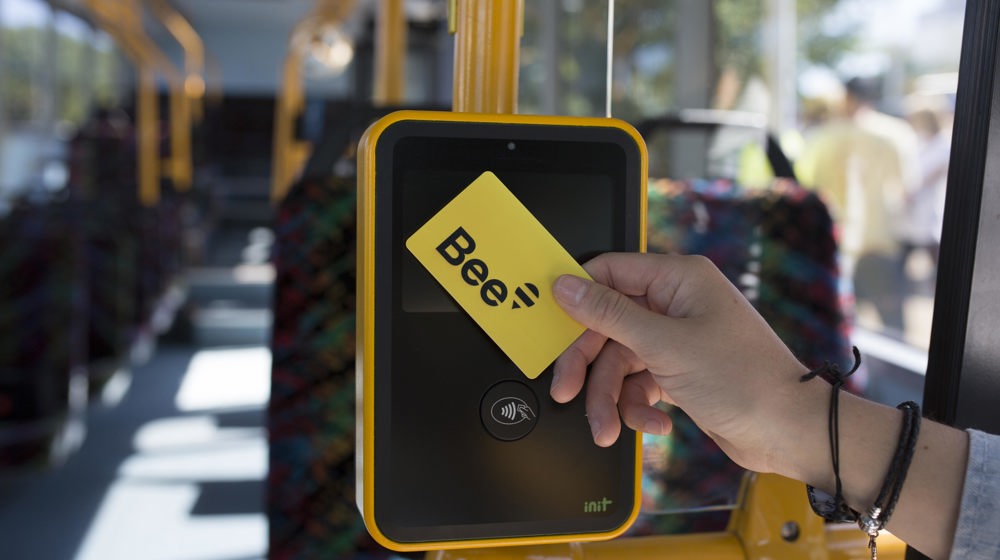We aim to make the buses accessible for as many people as we can.
Accessibility at Orbus means making bus travel as easy as possible for people with different needs. This may look like having dedicated wheelchair seating, non-slip flooring, low contact travel, or audible timetables at bus stops. However, it also looks like drivers who won't rush you, who will try to let you know when your stop coming up, or any number of small gestures that can make life easier for everyone.
Below are the things we are doing to try and help people use public transport as easy, comfortable and dignified as possible.
All buses in the fleet are low-floor to be pram and wheelchair-accessible. They have additional space for wheelchairs and prams/pushchairs.
During extreme circumstances, older buses will need to be called in and these may not have low floor features, however this is rare, and we try to update users on Facebook via OrbusQT for Queenstown residents and OrbusDN for Dunedin residents.
What to be aware of
- A driver may ask passengers to move out of priority seating for someone who needs it
- Our buses can kneel close to the kerb to make it easier for wheelchair users to board, however kerbs around Dunedin and Queenstown vary in height
- Because accessibility can differ from stop to stop, the driver may set up a wheelchair ramp to help you board. Please be patient as the driver looks to find a solution to assist you to board the bus
- If you have a motorised wheelchair, size can cause access restrictions on the bus. There is a maximum weight limit of 300 kg and a maximum width of 700 mm wide
Get in touch with us if you use a regular service, so we can look at the best way to help you get around.
All Orbus buses are accessible low floor buses. This puts the front door step at a height of around 370 mm above the ground, with a ramp to move up further into the bus.
All our buses can “kneel”. This means drivers can lower step of the front door down to a height of between 245 – 280 mm from the ground. According to the New Zealand Transport Agency, most curbs are around 150–160 mm from the ground.
Look for the “This bus kneels on request” sticker! Bus drivers won’t automatically kneel at every stop, as this would slow down the travel time, but they are always happy to kneel whenever needed, so please do ask.
The only animals allowed on the bus are service dogs, including guide and hearing dogs, and puppies in training.
Your dog should please be clearly marked as a service dog, should be on a lead and sit on the floor.
To a be a “disability assist dog” your dog must be certified by an authorised organisation. A list of these organisations can be found in Schedule 5 of the Dog Control Act 1996.
Domestic pets such as cats and dogs are allowed to travel on buses during off-peak times only and if they are in a pet carrier/container. Find out more about animals on buses.

E-stops are stops with an electronic display. They have an audio button for accessibility which says the upcoming departures.
The bus stops at Dunedin’s Bus Hub are e-stops and they display the timetable information for each particular stop.
E-stops let passengers know how many minutes until the bus arrives at their stop. We are installing more e-stops throughout Dunedin and Queenstown, with 50 planned to be installed during 2024.

For more affordable travel, get a Bee Card and get it registered.
Benefits of having a registered Bee Card include:
- Discounted fares if you have a valid Community Service card
- Tag-on and tag-off system for getting on and off a bus faster
- No need to carry cash or additional cards to travel
- Discounted fares are automatically applied, you don’t need any other form of verification.
Learn more about the Bee Card
Learn more about concessions (discounted fares)
The Queenstown ferries are unfortunately not accessible at the moment.
Please contact info@queenstownwatertaxis.co.nz who will do their best to support any accessibility requirements.
If you have difficulty accessing the bus service, the Total Mobility scheme could be an alternative for you.
Total Mobility offers subsidised travel using different and suitable vehicles to help people stay connected within their community.
To find out more visit our Total Mobility page or call us on 0800 474 082.

Total Mobility
The Total Mobility scheme aids eligible people to keep engaged with their community and support their daily transport needs through alternative transport methods other than using a bus.
Helpful info

How to catch the bus
Learn everything on how to use the Orbus public transport network, such as getting a travel Bee Card, planning your bus journey and more.

What can you take on the bus
Find Orbus guidelines on things you can and can’t take on the bus, including information on animals/pets and bikes.

Bee Card
Learn everything about the Bee Card, such as why you should get one, how to get it registered and how to use it.

Transit app
Learn more about the free Transit app to plan your journey and track your bus, along with where you can get the app.

Contact us
Get in touch with our fantastic customer services team if you have any questions or feedback on our Orbus services.
